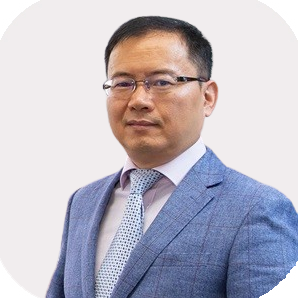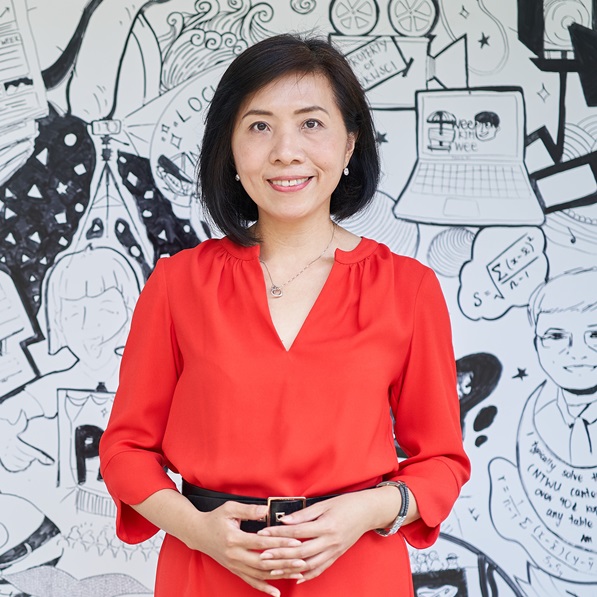Keynote Speakers | 主旨专家

Saurabh Sinha, IEEE Fellow
Saurabh Sinha obtained his B.Eng, M.Eng, and Ph.D. degrees in Electronic Engineering from the University of Pretoria (UP), South Africa (ZA). Prof Sinha is also a graduate of Wharton’s Advanced Management Program, University of Pennsylvania, USA (alum status). As an established researcher rated by the National Research Foundation, ZA, he has authored or co-authored over 140 publications in peer-reviewed journals, books and proceedings of international conferences. Prof Sinha served UP and the University of Johannesburg (UJ), ZA, for over 22 years – initially as an academic (at various tiers), and then as institute director, executive dean and deputy vice-chancellor. Prof Sinha moved to New Zealand in mid-2023, retaining visiting affiliations at both UJ (Business School and Engineering) and Princeton University (Engineering), USA. At the University of Canterbury, NZ, reporting directly to the vice-chancellor and principal, Prof Sinha leads the Faculty of Engineering as Executive Dean. Among his many achievements, Prof Sinha is a Fellow of the IEEE, recipient of a prestigious U.S. Fulbright grant, and has formerly served as IEEE Board of Director and Vice-President. He is registered as a Chartered Professional Engineer with Engineering New Zealand | Te Ao Rangahau.
Speech Title: Innovation and Impct: Navigating the Transition to University 4.0
The Future of Work is upon us and has rapidlyand profoundly influenced many professions and industries.Alongside this, we propose that it is essential for thelandscape of post-school education and training (PSET)both in South Africa and globally to adapt to the changingnature of work, and ideally lead this change. Learning ispresented as a nexus between teaching, research andinnovation — as a service in the context of the fourthindustrial revolution (4IR), given the innovative technologiesthat are increasingly penetrating the mainstream. Wediscuss the transition toward an augmented approach,University 4.0, and the associated challenges, bothtechnological and societal that accompanies the shift.

Qing Li, IEEE Fellow
Qing Li is a Chair Professor and Head of the Department of Computing, the Hong Kong Polytechnic University. He received his B.Eng. from Hunan University (Changsha), and M.Sc. and Ph.D. degrees from the University of Southern California (Los Angeles), all in computer science. His research interests include multi-modal data management, conceptual data modeling, social media, Web services, and e-learning systems. He has authored/co-authored over 500 publications in these areas, with over 28100 total citations according to Google Scholars. He is actively involved in the research community and has served as an associate editor of a number of major technical journals including IEEE Transactions on Artificial Intelligence (TAI), IEEE Transactions on Cognitive and Developmental Systems (TCDS), IEEE Transactions on Knowledge and Data Engineering (TKDE), ACM Transactions on Internet Technology (TOIT), Data Science and Engineering (DSE), and World Wide Web (WWW), in addition to being a Conference and Program Chair/Co-Chair of numerous major international conferences. He also sits/sat on the Steering Committees of DASFAA, ACM RecSys, IEEE U-MEDIA, ER, and ICWL. Prof. Li is a Fellow of IEEE.
Speech Title: KCUBE - A Knowledge Graph University Curriculum Framework for Student Advising and Career Planning
Knowledge representations and interactions are at the forefront of teaching, learning, and career planning activities in all endeavors of education and career development. University students are increasingly faced with a myriad of interdisciplinary topics that are seemingly unrelated when unstructured knowledge representations are presented, especially during advising and career orientation sessions. This is especially challenging in fast-changing technical domains such as Computer and Data Science where university curricula are reviewed on an annual basis. This makes it increasingly difficult for instructors and administrators to present both the big picture as well as the detailed knowledge components of degree programs to students when choosing a career or establishing a plan of study and assessment. This paper introduces the KCUBE project, a virtual reality knowledge graph framework for structuring and presenting both the overall view of the Computer Science curriculum taught in the Department of Computing at the Hong Kong Polytechnic University as well as the scheduling alternatives in managing course content and presentation views by instructors and students. We employ computational information storage and retrieval methods, machine learning, and interactive virtual reality to better understand, manipulate, and visualize abstract concepts and relationships in the development of teaching and learning activities in our department.

Prof. Chei Sian Lee
Dr. Chei Sian Lee is currently Professor at the Wee Kim Wee School of Communication and Information at the Nanyang Technological University in Singapore, where she is also the Associate Chair for Faculty. She is actively involved in research on issues related to everyday user-information interaction at work, school or play. Specifically, her research focuses on how digital and emerging technologies can be designed to facilitate everyday user-information exchanges and be used to change social behaviors, benefit communities, and create social good. More recently, she is investigating the deepfakes phenomena and the use of Generative Artificial Intelligence from an information-oriented perspective. Dr Lee received her B.Sc. and M.Sc. degrees in Computer and Information sciences from the National University of Singapore and her PhD in Management Information Systems from the University of Illinois at Chicago, Liautaud Graduate School of Business.
Speech Title: Searching as Learning with Everyday Digital Technologies and Generative AI
Abstract: Searching as Learning (SAL), a learning process with potential knowledge gain that occurs during searches in a digital environment, is an emerging field in human-computer interaction (HCI) research, especially with the recent technological advancements such as generative artificial intelligence (GAI). Many studies have investigated SAL’s learning perspective and facets supported by traditional search systems, such as web search engines, to access, search, and retrieve information to fulfill users’ learning intentions. The impacts of GAI and emerging technologies and their disruption to the existing SAL process need to be clarified. This presentation presents a series of studies on Generation Z and their SAL experience to understand how everyday digital technologies and GAI can help learners during SAL.
